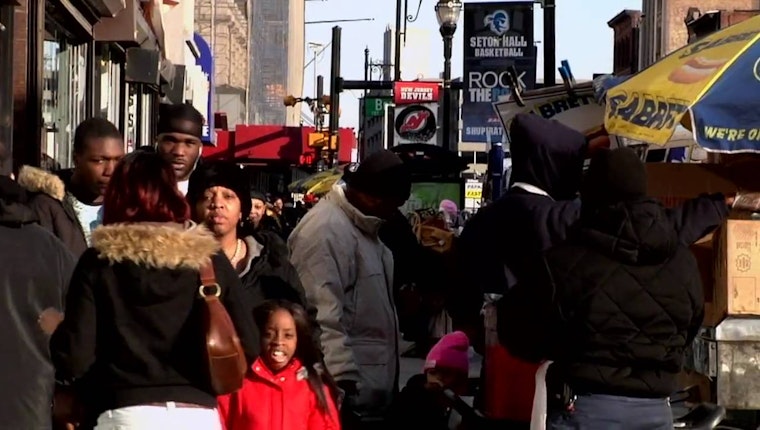"Beyond the Bricks" Broadcasts America’s Education Crisis for Black Boys
By Shawn Dove

The following originally appeared on the Association of Black Foundation Executives website.
While attending the recent Schott Foundation for Public Education’s Opportunity To Learn Summit one of the speakers asserted that responding to the education crisis of Black boys in America is the civil rights challenge of today’s generation. And while a complex web of inequities and disparities exist that force Black boys and men to the bottom of almost every success indicator in America, it’s not hard to agree that the deplorable educational outcomes are at the heart of the systemic problem preventing Black boys from realizing their full potential in American society.
The current education crisis is like a slow-drip Katrina; the likes of a category 5 hurricane that steadily erodes not only the schooling conditions of Black boys, but too many low-income students of every gender and all races attending under-resourced schools across the country. Yet, the Katrina metaphor does not come with constant CNN clips of Black male students standing on school rooftops across America holding up signs that read “please save me,” reminiscent of the TV news images of Hurricane Katrina victims.
Consequently, education advocates are more and more becoming masters of their own media, broadcasting the opportunities and achievement gaps within the public education system for Black boys - sounding an alarm and shining the light on the educational slow drip Katrina that, in its totality, presents a perfect storm for fueling the school-to-prison pipeline.
The Open Society Institute’s Campaign for Black Male Achievement was conceived to help improve the life outcomes of Black men and boys, with the premise that if America transforms the structural opportunities and outcomes of its most marginalized individuals it will improve the life outcomes of all its citizens. Two of the core goals of the Campaign are to integrate strategic communications across its three foundational grantmaking areas of Education, Family and Work to promote positive frames and messages about Black men and boys and to ensure that Black boys have the opportunity to excel academically, to prepare for college, and to learn skills essential to earning a living wage.
The Campaign is committed to cultivating philanthropic partners and making strategic investments in organizations to achieve these goals, so it made sense for us to support the recent Newark, New Jersey and New York City premieres and panel discussions of the film Beyond the Bricks. A 30-minute documentary produced by Koen & Washington Media, Bricks explores solutions to the poor academic performance and low graduation rates of school-aged Black males in the United States. The film follows two students from Newark, New Jersey, as they struggle against the school system to improve their educational circumstances, and includes interviews with educators, researchers, administrators, elected officials and activists who offer their ideas for solutions to the crisis facing Black boys.
Bricks illuminate a web of issues such as zero tolerance push out policies; school violence; absent fathers and the lack of innovative classroom engagement strategies that fuel America’s school-to-prison pipeline. In addition to portraying the problems, Bricks also uplifts the solutions and the policy advocacy levers that help the two strikingly bright young men featured in the film to get back on track with pursuing their education goals.
But the real power and beauty of new films like Beyond the Bricks and Bring Your "A" Game, the 21st Century Foundation’s cinematic clarion call to adolescent Black males to focus more on educational achievement as the pathway to adult success, is their potential to be catalysts for community mobilization, advocacy action campaigns and policy change conversations. For example, during a recent trip to Chicago, Phillip Thomas, senior program officer for the Chicago Community Trust, excitedly shared with me how "A" Game was being used as an organizing and advocacy tool in several Chicago neighborhoods.
Judging from the capacity crowd attendance for the Bricks viewings, the documentary is another welcomed media tool that can fuel education reform. It is critical that philanthropy continues to support arts and culture, media and technology that stimulate social change. Films like Beyond the Bricks are created with a vision beyond the viewing. The lasting impact and catalyst for change Bricks brings to its audience emerges after the closing credits when the action steps are made to stop America’s slow-drip Katrina.
Until February 2015, Shawn Dove was manager of the Open Society Campaign for Black Male Achievement.